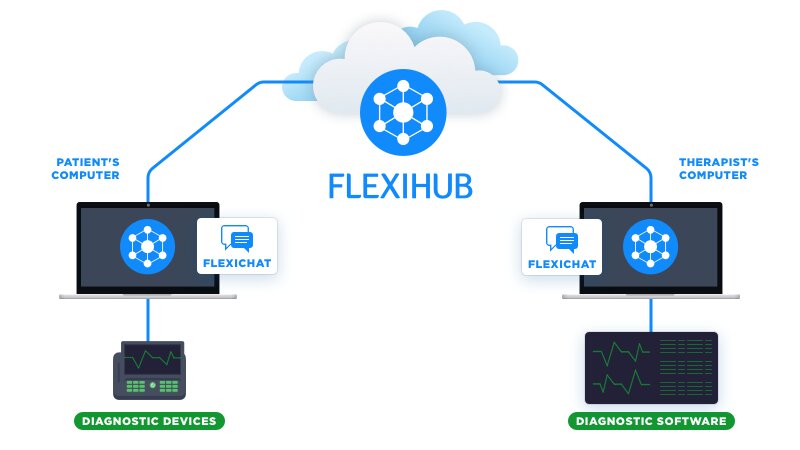Transpersonal Cybertherapy and FlexiHub
Dr. Raul Valverde developed a pioneering cyberpsychotherapy method using neurotechnology and quantum biofeedback to address issues in transpersonal psychotherapy.
This method involves EEG and the Emotiv 3D Brain Activity Map to monitor brainwaves and induce altered states of consciousness through networked devices. The system also includes Shakti technology to target specific brain structures, enhancing therapeutic outcomes. FlexiHub facilitates the remote connection, allowing therapists to access and interpret EEG data in real-time, promoting effective long-distance therapy.

The advantages provided by FlexiHub:
The main advantage of cybertherapy (remote treatment) is that individuals who might not have access to other forms of mental health therapy, due to discomfort with traditional sessions or physical inability to leave their homes, now have alternative options.
- ■ Cross-platform support. You can share a medical device attached to a Windows machine and access it from a remote Mac or Linux machine, and vice versa.
- ■ Secure connections. This is well-written but can be slightly tightened: All communications over the network via FlexiHub are protected with advanced encryption, crucial for handling medical data.
- ■ Intuitive interface. This is clear and concise; no changes needed.




